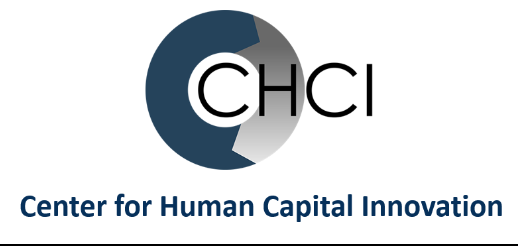
Hybrid Coaching: The Future of Career Development
Workplace learning looks much different than it did a decade ago. In the past, in person training was the norm, limiting who could attend. Now, with the emergence of comprehensive online courses and artificial intelligence (AI) tools, it’s possible to evaluate a learner’s needs, skills, and gaps in real time, while suggesting courses and training along the way.
AI is moving beyond simply recommending courses for professional development to emerging as an effective executive coaching tool. Before we continue, let’s define what that means. In this blog, we’re not discussing technical skills, which would include coding hacks, learning a new billing process, or help with spreadsheet formulas, because we know that AI already excels in these arenas. Instead, we will look at behavioral and non-technical skills, such as building emotional intelligence, navigating team dynamics, and sharing feedback. Focusing on non-technical skills means that AI can encourage self-awareness through deep questioning and constructive questions, the things that professional executive coaches do.
The bottom line is that while AI is not yet a replacement for human coaches, it has already proven itself a powerful and practical co-pilot. AI-enabled coaching will not automate empathy or replace trusted advisors. It can, however, improve access, insight, efficiency, and outcomes while keeping the human element intact.
AI to Enhance, Not Replace
We spoke with some of the strongest voices in the coaching field, and they are clear on this: AI is an enhancer, not a substitute. Prominent executive coaches who adopted the technology in their practices consistently refer to its capabilities as well as its limitations. They draw a sharp line between AI tools and in-person coaching, especially in moments where emotional intelligence matters most—layoffs, promotions, conflict, and culture change. They emphasize that AI excels at supporting the coaching process through pattern recognition, data synthesis, and timely nudges, yet it is not capable to coach solo.
These experts refer to AI as a “performance assistant tool” that reinforces what’s discussed in human sessions. They warn that mislabeling AI as a “coach” undermines the very essence of coaching: trust, presence, empathy, and insight rooted in experience. That said, when AI is used intentionally to complement human coaching—not mimic it—the benefits are substantial.
The Real Coaching Upside: What AI Brings to the Table
- Coaching at Scale
Perhaps the most referenced development is the democratization of coaching. Historically reserved for executives, coaching has often been out of reach for frontline employees and rising leaders due to its costs. While not true executive coaching, AI breaks this bottleneck by providing meaningful developmental support at a fraction of the cost. To be clear, it’s inaccurate to label it “coaching.” That said, AI can analyze a person’s behavioral patterns and then ask questions to prompt action for the next step toward professional development. - Enhanced Insight and Reflection
AI can absorb vast amounts of data—coaching transcripts, assessments, emails—and return insights that even the sharpest coach might miss over time. From detecting mindset shifts to surfacing limiting beliefs or biases, AI can help individuals reflect more deeply, more often. Tools like Microsoft Copilot go a step further by scanning documents, summarizing communications, and linking users to targeted learning resources.
- Real-Time, Contextual Feedback
Imagine walking into a high-stakes meeting with a data-driven briefing based on your last five interactions. AI can do that. It can read sentiment, analyze language, and help leaders fine-tune their behavior in real time. It’s like having a developmental mirror 24/7. - Administrative Lift and Time Savings
On the tactical side, AI can lighten the load. From capturing notes to automating scheduling, drafting follow-up emails, or even brainstorming ideas for a document, AI allows coaches and clients to focus on the conversation, not the admin. - Safe Simulation and Practice
With tools like Skillsoft’s CAISY, clients can simulate tough conversations or challenging dynamics in a judgment-free zone. Whether it’s giving tough feedback or navigating a tricky stakeholder, AI-driven practice helps build confidence and skill before the real moment arrives. - On-Demand Support
AI doesn’t sleep. Users can check in at odd hours, revisit reflections multiple times, or test ideas they’re not ready to share with a human. This always-on availability helps sustain momentum and progress between human coaching sessions.
Where AI Still Falls Short
Despite its growing usefulness, AI coaching isn’t a magic bullet, so be aware of its current limits:
Emotional Intelligence Still Belongs to Humans
AI can’t yet replicate the emotional intuition that coaches bring to the table—the nuance, the silence, the gut instinct to challenge or hold back. It’s capable of single-loop learning (helping clients clarify goals and take action), yet it lacks capability for double-loop learning, which are those deeper shifts in mindset and identity that require empathy, trust, and wisdom.
Trust and Adoption Are Still Barriers
While some employees appreciate the ability to practice without an audience on AI, others aren’t quite ready to open up to an algorithm. There’s a psychological leap between “AI as productivity tool” and “AI as developmental partner.” Many still see it as “ChatGPT in a suit”, not a serious growth enabler.
Lack of Oversight and Change Management
Too often, organizations buy AI tools and expect magic. Without human oversight, thoughtful integration, and coaching on how to use AI tools well, they will fall flat. AI can’t guide transformation on its own—it needs a cultural runway and human stewardship.
Integration and Ease of Use Matter
Standalone platforms often fail to stick. The tools that get used are the ones embedded into existing workflows, like Copilot in Outlook and Teams or Gemini for Google Suite. If it’s not frictionless, it’s not sustainable.
User Sophistication is Key
AI’s value depends on how well users can engage with it. The best results come when users are taught to use prompts like “Challenge my assumptions” or “Don’t let me off easy.” Without that fluency, the feedback loop can be too shallow.
What’s Next: The Path Forward
In the next few years, expect AI to become as commonplace in coaching as email is in communication: inconspicuous and indispensable. AI platforms could morph into end-to-end development partners, helping employees navigate everything from upskilling and career planning to difficult conversations and better performance reviews.
Embrace the hybrid model.
AI in coaching isn’t just another HR tech trend—it’s a competitive opportunity. For now at least, focus on the hybrid model: Human Coach + AI + Client. Let AI do the heavy lifting—synthesizing data, offering nudges, surfacing insights—while the human coach focuses on the relational aspects like emotional support and accountability. Employees have the chance (and responsibility) to shape how it’s used. Educate your teams and challenge the tools to be better. In fact, when human coaches help set the frame and goals for AI engagement, clients are more likely to stick with it and grow.
Have you used AI in coaching, either as a coach or a coachee? What kind of tool would be most helpful to you in coaching? Leave a comment below, send us an email, or follow us on LinkedIn.


Leave A Comment